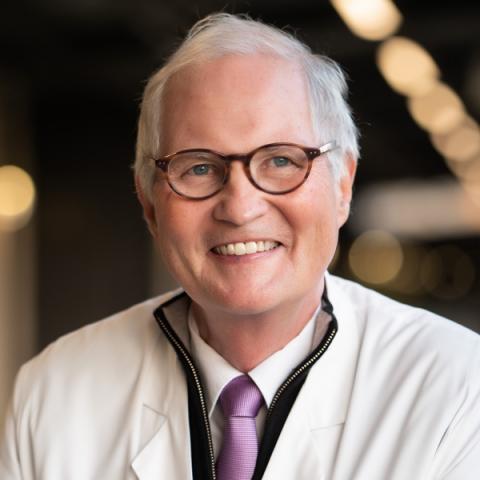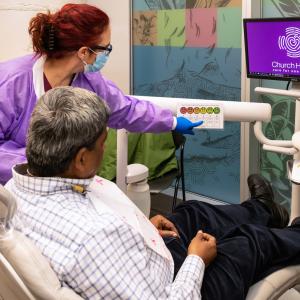
G. Scott Morris is founder and CEO of Church Health in Memphis, Tenn.
Posts By This Author
There Is a Balm in Memphis
IN SEPTEMBER 1987, ordained Methodist minister and practicing physician G. Scott Morris opened Church Health, a faith-based health care center in Memphis, Tenn. The first clinic tended to 12 people. Over 35 years later, more than 80,000 different individuals have come through Church Health’s doors. When they started, Memphis was the poorest city in the country, but Morris and companions didn’t open Church Health center as an act of charity. Church Health’s mission has always been about demanding justice. His book Care: How People of Faith Can Respond to Our Broken Health System tells the story of clinics across the U.S. where people practice Jesus’ command to heal. — The Editors
I FIRST CAME to Memphis in 1986. Having completed my theological and medical education, I was determined to begin a health care ministry for uninsured people working in low-wage jobs. I had dreamed of this for years as I slogged my way through the training that would make it possible. When the time came, I chose Memphis because historically it is one of the poorest major cities in the U.S. Today we see patients in clinics for primary care, urgent care, dental work, and optometry services. Behavioral health, life coaching, and physical rehabilitation are integrated into our clinics, and we have a teaching kitchen offering classes on culinary medicine for patients and the community. The Church Health model is used in more than 90 clinics around the country. There are about 1,500 free and charitable clinics in the U.S., many of which have faith-based connections.
God calls the church to healing work. Jesus’ life was about healing the whole person, and Jesus is the church in the world. Tradition suggests that Helena, the mother of the emperor Constantine, was the first to open a hospital specifically to care for the poor. The ancient world never had a system to care for the sick who were poor until Christians offered hospitals. Even Julian the Apostate, a fourth-century Roman emperor who did not have much use for Christians, wrote, “Now we can see what it is that makes these Christians such powerful enemies of our gods, it is the brotherly love which they manifest toward strangers and toward the sick and poor, the thoughtful manner in which they care for the dead, and the purity of their own lives.” We are still Jesus’ disciples, the body of Christ running after God’s priorities in the world together. What does it look like to have a healing ministry in today’s world?
